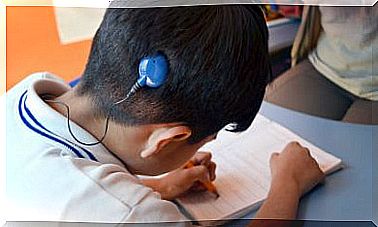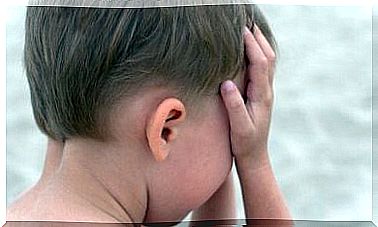The Difference Between Punishment And Consequence

Children test limits and break the rules. This is part of your learning experience. On the other hand, we, as parents, can choose how to react to each situation to educate our children. This is the importance of punishment and consequence.
Faced with the challenges of daily life, it is important to remain calm and act like the adult that you are. Do not let yourself be overcome by impulses and the negative emotion of the moment, and avoid the insane confrontation.
And because? because that way we will avoid hurting our children and distancing them from us. It is in times of difficulty that it is more necessary than ever to stop, think, and weigh our educational methods.
It should be noted what Dr. Alberto Soler explains below about the most retrograde and harmful methods:
”One way of transmitting discipline to children is through rewards and punishments, which are the methods in which the majority of today’s parents were educated and the most frequently used with the aim of achieving good behavior. However, methods based on rewards and punishments are not without numerous disadvantages ”.

Respect for authority: punishment and consequence
The penalty
Punishments always cause, at the very least, discomfort. This method seeks to make children feel bad and not repeat the behavior for fear of causing displeasure to their parents.
The main purpose of a punishment is to enforce the rules through authoritarianism. It may seem like it works in the moment but it will not create a sense of responsibility in children.
Rather, it causes feelings of anger, resentment, and lack of motivation. These factors then lead children to deception and avoidance.
The most harmful side of punishment is that the child is judged by who he is and not by what he did. In other words, punishment adds a negative label to the person, not the action, which damages self-esteem.
Thus the situation becomes a snowball in which the most affected is the little one. Deterioration in self-concept leads to more inappropriate behaviors in the future.
The consequences
In the balance we also have the consequences. When we expose and explain them to the child, he can really understand the reason for our decisions and, also, the effects of his actions.
Unlike punishment, by explaining the consequences of actions to children, they are not overwhelmed by shame but rather reflection, understanding, good communication and even empathy are promoted.

The consequences focus on the results of the actions and not on the individuals themselves. They will be able to identify that there are problem behaviors, but never problem children. Consequently, self-esteem is not damaged and character is strengthened.
In other words, when the consequences of actions are explained, a negative environment is not created in which everything is confrontation and power struggle.
The 3 Rs of logical consequences
For a consequence to have value, it must meet three characteristics:
- Relationship. If your child spilled his juice on purpose, he will need to clean up what he did. Preventing you from playing with your console or your phone has nothing to do with inappropriate behavior.
- Unlike punishment, the consequences do not have to denigrate the child. Avoid at all costs reacting in moments of anger, hurtful words are never reversed. Even if you are imposing corrective action, your tone of voice and what you say should remain calm and respectful.
- This last characteristic refers to the fact that the consequence must be within the possibilities of action of the children. They should also be commensurate with the behavior you are trying to improve. Keep in mind the age of the children and the seriousness of what they did.
Although many parents of this generation have been brought up through punishment, it is a methodology that can be modified.
Discipline must be firm and punctual but based on respect and awareness of the other as a human being. How the children assimilate your authority depends on your reactions and decisions.










